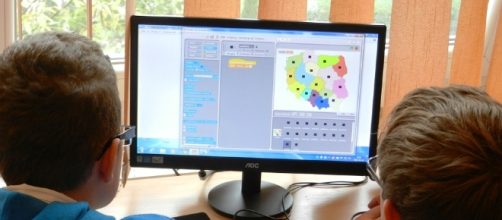Education Technology (Edtech) has long considered a driving force in the revolutionary transformation of the global education sector. Due to its pervasive influence, this innovative platform aims to strengthen the skills and knowledge of students, but a special report revealed the cons about EdTech.
As we lived in a generation where modern technology thrives, we can’t deny its increasing influence on our day-to-day life. With its transformative power, it is really unsurprising to learn that it already invaded the science of learning through more personalized, interactive and hands-on approaches.
Despite its promising benefits in the education sector, there are still a lot of skepticism around it. In fact, a special report from The American Spectator suggested that education technology or Personalized Learning is doing more harm than good to education.
Issues
It is already a known fact many tech firms have spearheaded the funding, development, and creation of several EdTech platforms. With an aim to revolutionize the conventional pedagogical approach in the classrooms, many have joined the bandwagon in promoting these so-called “innovative and engaging” digital devices for the students.
Unfortunately, personalized learning comes with a lot of issues. According to the National Education Policy Center (NEPC) report titled, “Asleep at the Switch: Schoolhouse Commercialism, Student Privacy and the Failure of Policymaking,” technological innovations such as “personalization” and the lack of regulation on these advances could impact the privacy of students.
Through “not validated and untested” EdTech products, student’s privacy could be wiped out, while the quality of education could be corrupted. The report also explained what personalized learning means, in which the collected data are submitted to algorithms that can predict the behavior of students.
Drawbacks
These algorithms, however, have several drawbacks. One of which is being biased since they are also created by humans who might unintentionally inject their own preferences.
Another problem some experts noticed is the lack of transparency. The reason? Well, let’s just say that the algorithms can’t be verified by a third party for its reliability and validity. Tech firms also do not tell the schools about the issues that they haven’t figured out yet.
These educational technology products are also untested, and often times, no research or field test is being conducted to validate them. Due to this fact, students are left unprotected. Apart from that, there’s also the issue of data security.
How to Protect Education #Data When No Systems Are Secure #Edtech #Education #EducationTechnology #Teachinghttps://t.co/IU1ktTfwz2 pic.twitter.com/0XVREiARTU
— David Yakobovitch (@davidyako) September 26, 2017
Does EdTech improve education?
Meanwhile, a National Bureau of Economic Research-published study titled, “Education Technology: An Evidence-Based Review,” has determined which technology is really useful in the improving education and which doesn’t. As per U.S.
News & World Report, the findings suggested three significant observations.
One, accessibility to internet and computers alone do not improve learning. As explained by the researchers at the Abdul Latif Jameel Poverty Action Lab (J-PAL), a Massachusetts Institute of Technology economics department organization, hardware does not make students smarter.
They also found that some educational software could boost academic outcomes. However, using computers does not improve a student’s achievement.
Second, some math software is promising, and the top math programs are ASSITments, SimCalc and DreamBox. For reading, the software Intelligent Tutoring for the Structure Strategy (ITSS) was found effective.
The comprehensive math teaching curriculum called Cognitive Tutor, on the other hand, yielded mixed results.
Lastly, the researchers found that low-cost technological interventions such as “text message reminders” could be effective to parents and students. J-PAL’s Vincent Quan said text messages were more effective in bringing significant “impact” on academic outcomes compared to expensive and complicated tech platforms.


